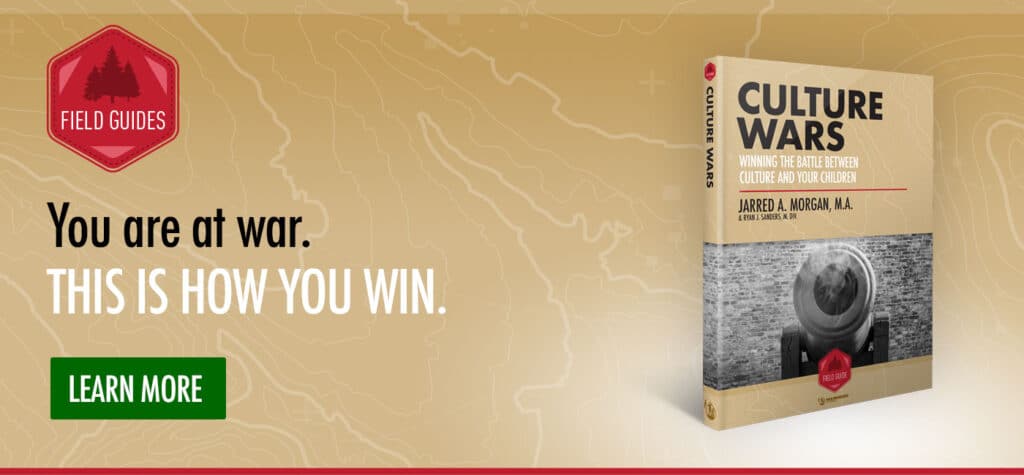Your kids have almost unlimited media choices today. Whether it’s on TV, a computer, tablet, or smartphone, opportunities are everywhere. How do you protect them and ensure the shows, music, and videos they see are not destructive?
It’s not an easy world to navigate for you or your kids. I want to give you a couple of biblical filters you can apply to the media you take in. Then, you can teach your kids how to instill these filters into their hearts and minds. So, when you’re not in the room, they can think for themselves about their media choices.
Finally, brothers and sisters, whatever is true, whatever is noble, whatever is right, whatever is pure, whatever is lovely, whatever is admirable—if anything is excellent or praiseworthy—think about such things. —Philippians 4:8
——
I will not look with approval on anything that is vile. I hate what faithless people do; I will have no part in it. —Psalm 101:3
Teaching your kids to make wise media choices when you’re not in the room.
As a dad, your children are going to ask this question very soon: what can we watch on TV or what music can we listen to? If you missed last week’s post, read 4 approaches to handling screen time for kids and then jump back to this post. I want to lean in on the idea of using Bible filters to help you and your kids have a process for what they should and should not do when it comes to media.
What’s Paul in the New Testament have to say?
No, the Apostle Paul didn’t know about TikTok. He didn’t have to. God works like that. Here’s the principle that works for us today. Paul writes in Philippians 4:8, “Finally, brothers and sisters, whatever is true, whatever is noble, whatever is right, whatever is pure, whatever is lovely, whatever is admirable—if anything is excellent or praiseworthy—think about such things.”
Now, you could use this Scripture to pass a lot of today’s media through. For example, whether you’re watching mainstream news media, listening to an album, or watching a YouTube video. Ask yourself: does whatever you’re taking in pass through this filter of what is noble or true or pure?
Here’s my opinion: I think most of the news and media we consume can help us engage with society around us. But, I also think some of us could err on the side of over-consuming news and media. Do you really need to know some guy got his arm bit off in Tallahassee? Really? Knowing this news isn’t necessarily evil, but do I need to know this information to be a godly dad and husband? Probably not—I don’t even live in Florida!
Think about it, would the following things pass through the Philippians 4:8 filter in your house?
- News
- Movies
- TV shows
- Music
- Video games
- Apps
And now, a word from David in the Old Testament.
David, remember, he knew what it was to fail God and serve God. He ups the bar when he writes Psalm 101:3, “I will not look with approval on anything that is vile. I hate what faithless people do; I will have no part in it.” Some versions say, “I will not let any worthless thing be before my eyes.”
Think about it. Are the things you’re watching and spending so much time on—are they worthless?
At some point, you’ll need to have this conversation with your family. Yes, certain things will be a big, fat waste of time when it comes to media. Some things alright. Some things will be more obvious than others as you try to make decisions based on these biblical filters.
But, what about the gray areas? Your kids are looking at you to make the decision, how will you decide? That’s where this Scripture is helpful. Step back and ask for yourself and for your kids, what’s the worth? What’s the value?
Now, with this idea in mind, if you do decide you’re going to watch three hours of news every day. Fine, you can do that. But, what’s the worth? When you consume whatever media you’re consuming, how is it helping fulfill the calling God has on your life?
Here’s my point: as you go through this process, I encourage you to have Bible filters. You don’t have to use these two filters. But, my aim is to help you point back to Scripture. It’s powerful to be able to say: “The reason our family consumes this or that thing is because it passes through the filters we find in Scripture.”
Why do this? Because when we do, we’re not only helping our children know what is in and out of bounds in our house—we’re teaching them how to decide what is in and out of bounds once we’re no longer in the room.
As your kid’s age out of your home into adulthood, what tools are you giving them to make wise, godly decisions? There’s a ton of Scriptures you could use to fight this battle. These two Scriptures will help get you started.
Your mission for helping your kids make wise media choices.
I want you to do two things now.
#1 Audit the media you consume. Look at that TV show your family tends to gather around and ask:
- Does it pass through the Philippians 4 filter?
- Is it in bounds when considering the Psalm 101 prohibition?
A lot of our media might not make it through that filter.
#2 Then, I want you to have this conversation with your children. Expose them to these biblical principles and say, “Hey guys, how can we honor the Lord better in this area?” Pull your kids in on the play.
Here’s the deal: if you want to simply make the rules and enforce them as in, “We decide. You abide!” You can do that. But, as your kid’s age, you’re going to need them in on the play. You’re going to need their heart in on the decision—not just their head and not just their actions. Use this as an opportunity to create the conversation and begin to move your family toward a place where your media choices honor the Lord.
More tools to help your kids make wise media choices.
Here are six ways you can find help for making wise media choices.
- Read this post for 4 approaches to handling screen time for kids.
- Grab the free YouVersion Bible Reading Plan: Becoming a Battle Ready Father.
- Snag the Culture War Field Guide and know how to win the battle between culture and your kids.
- Get the extra help you need for leading, communicating, and discipling your kids.
- Find the resources you need to lead your son or a small group of dads and sons?
- Connect with our community of dads all trying to get better at being a godly dad.














